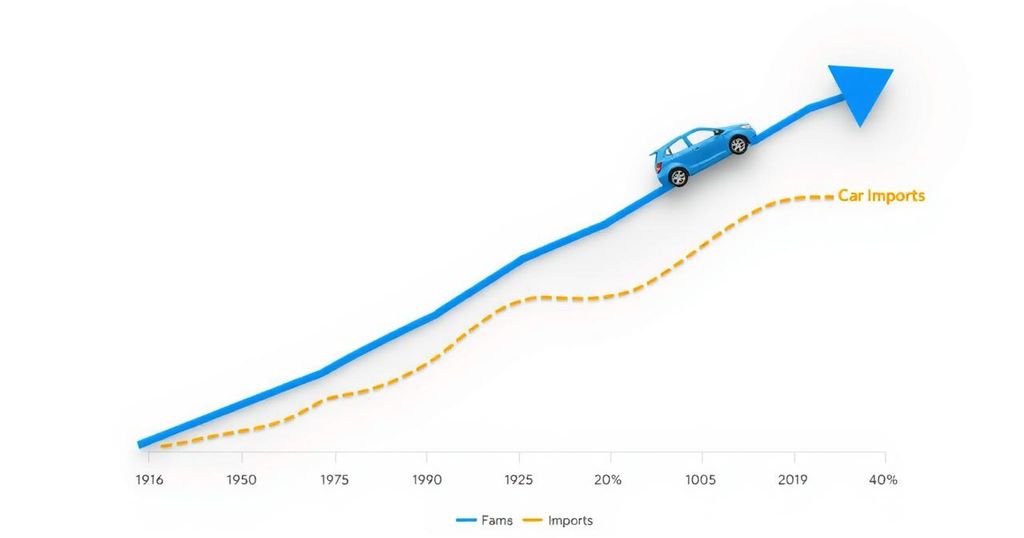In 2024, Nigeria’s passenger car imports dropped by 14.2% to N1.26 trillion, primarily due to volatile exchange rates and rising inflation. The naira depreciated significantly against the dollar, and escalating customs duties have affected consumer buying patterns, leading to a preference for locally made cars.
In 2024, Nigeria experienced a notable decline in passenger car imports, which fell by 14.2% to N1.26 trillion from N1.47 trillion in 2023. This slump is primarily linked to fluctuating exchange rates and rising inflation, which have adversely affected the importation process. The data reflects a challenging environment for the currency market, despite efforts for economic stabilization.
The decrease in car imports in Nigeria is significantly influenced by the depreciation of the naira and heightened customs duties. The car dealership sector faces tough conditions, with a shift in consumer purchasing patterns, favoring locally manufactured vehicles due to their lower costs. This situation highlights the shrinking middle class and drives demand predominantly from wealthier individuals.
Original Source: businessday.ng




